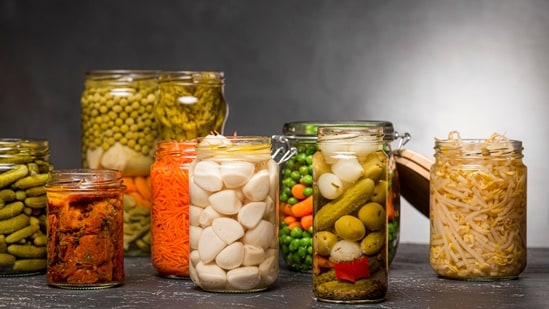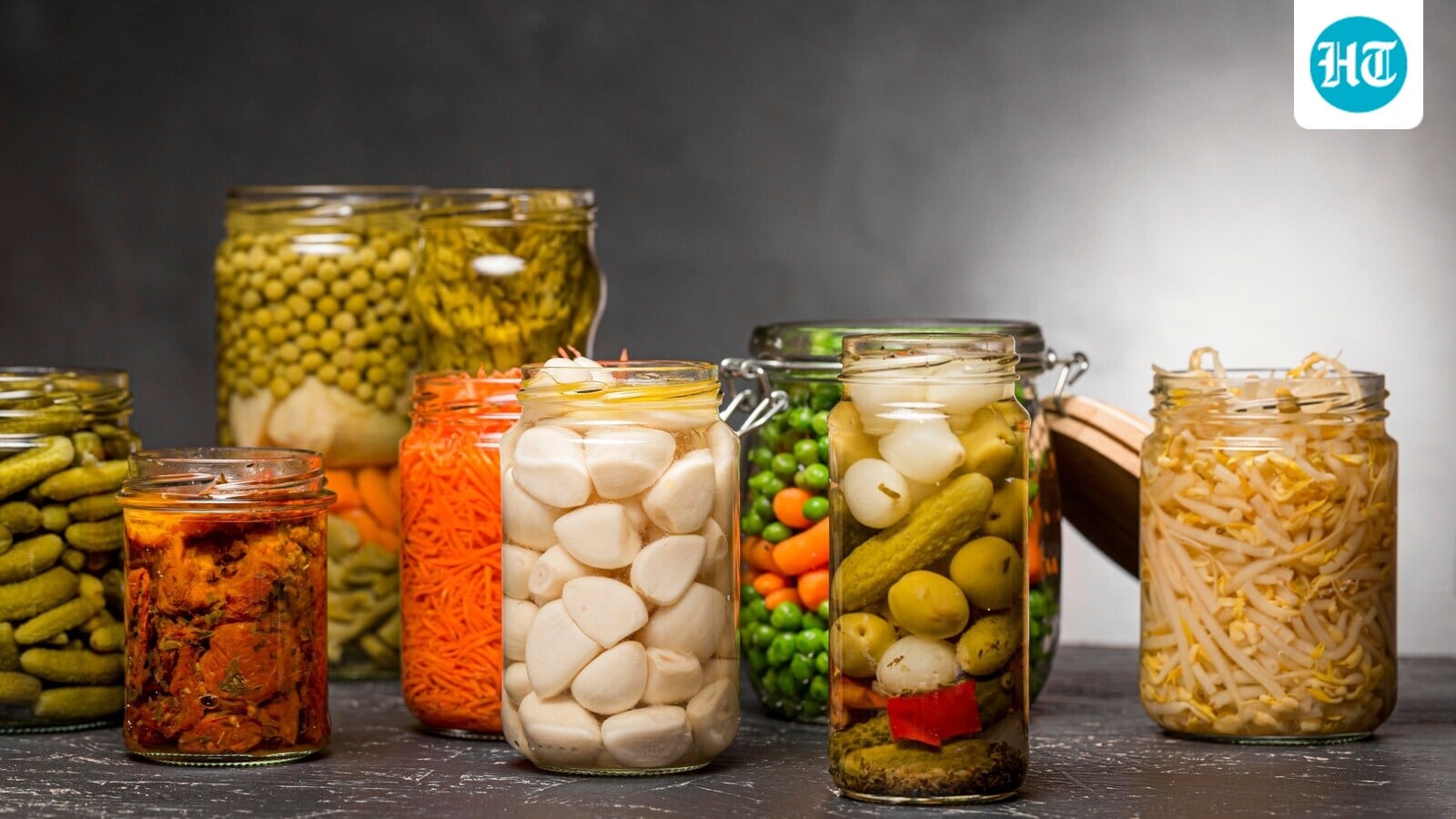Fermented foods like kimchi, yoghurt, and kombucha have gained huge popularity for their supposed gut benefits, but many people misunderstand how they actually work. Dr Saurabh Sethi, a gastroenterologist trained at AIIMS, Harvard, and Stanford Universities, shares in his September 21 Instagram post 7 most common mistakes people make when consuming these foods and what you should know to get the benefits safely. (Also read: AIIMS gastroenterologist says ‘using phones on toilet raises haemorrhoid risk by 46%’; shares 7 reasons to avoid it )
 Gastroenterologist shares how to safely enjoy fermented foods for gut health. (Freepik ) 1. Not all fermented foods have live probiotics
Gastroenterologist shares how to safely enjoy fermented foods for gut health. (Freepik ) 1. Not all fermented foods have live probiotics
Most packaged pickles don’t contain live bacteria. For real probiotics, opt for kefir, yoghurt, dahi, buttermilk, kimchi, or sauerkraut.
2. Heat kills probiotics
Cooking destroys beneficial bacteria. If your sauerkraut or kimchi is cooked, the probiotics are gone. Fermented foods used in idli, dosa, or dhokla improve digestibility, but most live cultures don’t survive steaming or frying. Eat them raw whenever possible.
3. Yoghurt isn’t always probiotic
Some store-bought yoghurts have more sugar than soda and very few active cultures. Always look for the label “live and active cultures.”
4. Variety matters
Eating the same yoghurt every day won’t diversify your gut microbiome. Rotate between kefir, kimchi, miso, sauerkraut, and kanji to get broader benefits.
5. Fermented doesn’t mean a cure-all
Fermented foods support gut health but don’t replace fibre or a balanced diet.
6. Start slow
Introducing too much at once can cause gas and bloating. Begin with a few spoonfuls a day and gradually increase.
7. Storage matters
Shelf-stable pickles and chutneys usually have no live bacteria. For probiotics, choose refrigerated options like pickles, sauerkraut, kimchi, yoghurt, or homemade dahi, lassi, or kanji.
Note to readers: This report is based on user-generated content from social media. HT.com has not independently verified the claims and does not endorse them.
This article is for informational purposes only and not a substitute for professional medical advice.

